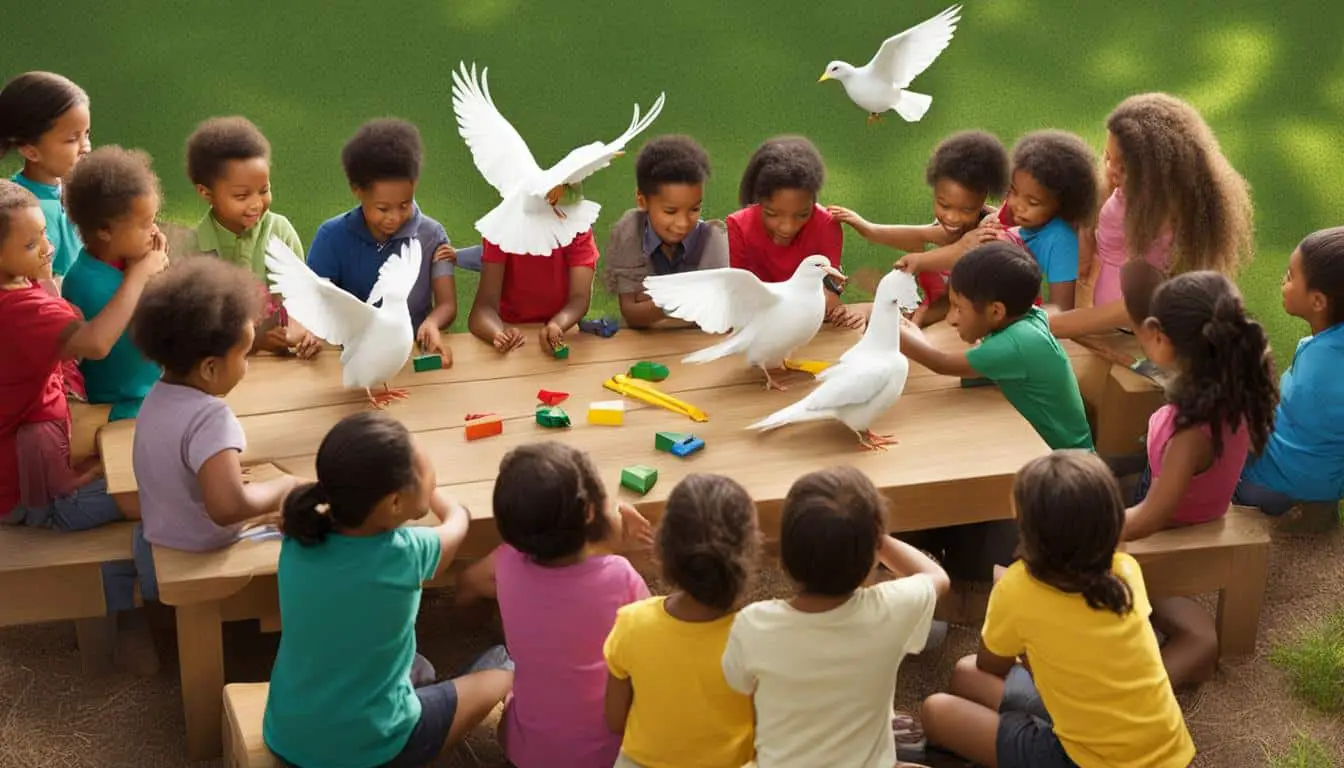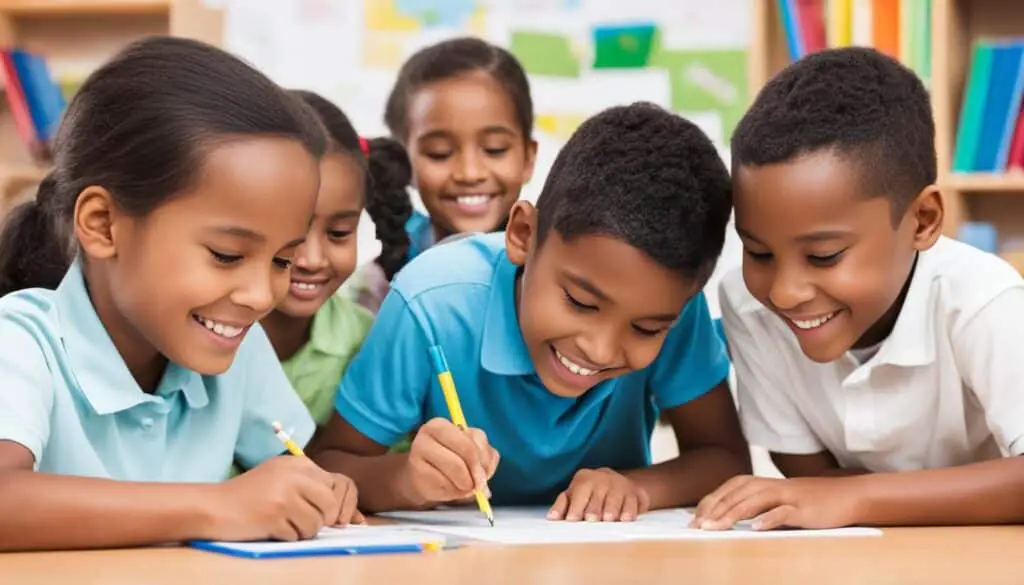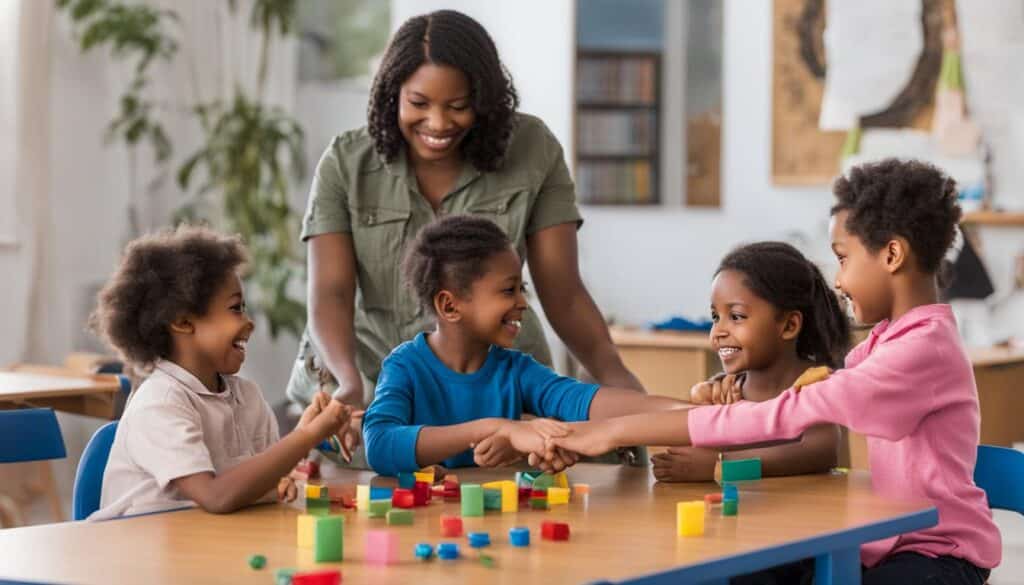
Teaching Conflict Resolution to Children: Essential Skills for Emotional and Social Growth
As a parent or caregiver, helping children navigate through conflicts is a critical aspect of their emotional and social growth. Conflict resolution skills equip children with the tools they need to manage disagreements in a peaceful and respectful way. By teaching conflict resolution to children, we can foster positive relationships, improve communication, and promote empathy and problem-solving abilities.
Key Takeaways
- Teaching conflict resolution to children is crucial for their emotional and social development.
- When conflicts are not handled effectively, children may experience negative consequences.
- Developing conflict resolution skills allows children to communicate effectively, solve problems, and build better relationships.
- Strategies for teaching conflict resolution skills to children include age-appropriate activities, role-playing exercises, and effective communication techniques.
- By teaching conflict resolution skills, we can empower children to navigate conflicts, both now and in the future.
Understanding Conflict and Its Impact on Children
Conflict is a natural part of life, but it can have a significant impact on children. From minor disagreements to more significant disputes, conflicts can cause emotional stress, anxiety, and confusion for children. The impact of unaddressed conflicts can be detrimental to their social and emotional development, leading to long-term negative outcomes that can persist into adulthood.
There are different types of conflicts children can experience, including interpersonal conflicts with friends and family members, bullying, and conflicts arising from cultural or societal differences. In these situations, children may feel frustrated, helpless, or upset and may resort to negative behaviors such as aggression, avoidance, or repressed anger.
Without proper conflict resolution skills, children may grow up without the tools necessary to effectively manage and resolve conflicts in a healthy and positive way. This can lead to difficulties in their personal and professional relationships, as well as in their mental health and overall well-being.
The Impact of Unresolved Conflict
Unresolved conflicts in childhood can lead to long-term negative effects, including low self-esteem, impaired cognitive development, depression, and anxiety. These consequences can persist well into adulthood and can negatively impact important areas of life such as education, career, and personal relationships.
In addition to these internalized issues, unresolved conflicts can also lead to external problems such as academic underachievement, substance abuse, and criminal behavior. Therefore, it is crucial to address conflict in childhood and teach children the appropriate skills to manage it effectively.
| Long-term Effects of Unresolved Conflict in Children |
|---|
| Low self-esteem |
| Impaired cognitive development |
| Depression and anxiety |
| Academic underachievement |
| Substance abuse |
| Criminal behavior |
By teaching children effective conflict resolution skills, we can help them develop the confidence, empathy, and emotional intelligence they need to navigate the complexities of human relationships and succeed in life.
The Benefits of Teaching Conflict Resolution to Children
Teaching conflict resolution skills to children can yield numerous benefits that extend far beyond resolving conflicts themselves. When children are empowered with the tools to handle conflicts peacefully, it fosters empathy and effective communication skills, which can positively impact their relationships and overall well-being.
One of the greatest benefits of teaching conflict resolution is promoting problem-solving abilities in children. Conflict resolution teaches children to approach problems with critical thinking and creativity, enabling them to generate solutions on their own. By developing problem-solving skills early on, children are better equipped to face and overcome challenges later in life.
Beyond the immediate benefits, teaching conflict resolution can also have a long-term impact on a child’s emotional development. When children know how to handle conflicts positively, they feel more empowered and confident. It can help build self-esteem, which is crucial for personal growth and success. Children who have healthy self-esteem are often more resilient and better able to recover from setbacks and failures.
Another benefit of teaching conflict resolution skills is that children learn to better understand and manage their emotions. When children have a grasp of their own emotions, it sets the stage for more positive communication with others. They can express their needs and wants more effectively, which can lead to healthier and more fulfilling relationships.
“Teaching kids early on that life is not always fair prepares them for life’s challenges” says Jane Nelsen, author & speaker of Positive Discipline.

Overall, teaching conflict resolution skills to children is a investment in their emotional intelligence, which can benefit them in all aspects of life, not just conflict resolution. Empowering children with the tools to handle conflicts productively is an investment in their lifelong success.
Strategies for Teaching Conflict Resolution to Children
Teaching conflict resolution to children is a crucial part of their social and emotional development. It equips them with the necessary skills to handle conflicts peacefully and promotes healthy relationships with peers and adults. Here are some strategies and techniques that can be used to teach conflict resolution to children:
1. Encourage Active Listening
Active listening is an essential component of effective communication and conflict resolution. Teach children to listen attentively to others without interrupting and allow them to express their thoughts and feelings. This will help to build mutual respect and understanding, providing a foundation for resolving conflicts peacefully.
2. Role-Playing Exercises
Role-playing is an excellent way to teach children how to handle various conflict scenarios. It allows them to practice different conflict resolution techniques and learn to implement them effectively in real-life situations. These exercises can be done in pairs, small groups, or as a class activity.
3. Practice Positive Reinforcement
Positive reinforcement is a strategy that focuses on rewarding desirable behavior. When children demonstrate effective conflict resolution skills, acknowledge and praise them for their efforts. This will help to encourage them to use these skills more frequently and build confidence in their abilities.

4. Use Age-Appropriate Activities
Children of different ages require different approaches when teaching conflict resolution strategies. Younger children may benefit from stories, puppet shows, or art activities, while older children may enjoy group discussions, debates, or writing activities. Choose activities that are engaging and age-appropriate to promote effective learning.
5. Teach Problem-Solving Skills
Teaching children problem-solving skills is an important part of conflict resolution. Encourage them to identify the problem, brainstorm solutions, evaluate each solution, and implement the best one. This will help children to develop critical thinking skills and promote creative and effective problem solving.
By using these strategies and techniques, we can help children to develop the skills they need for successful conflict resolution. These skills will not only prepare them for current situations but also serve as lifelong tools for healthy and positive relationships.
Conclusion
In conclusion, teaching conflict resolution skills to children is critical in fostering their emotional development and promoting positive social interactions. We have explored the concept of conflict and its potential negative impact on children, highlighting the importance of equipping them with the necessary tools to handle conflicts peacefully.
Throughout this article, we have discussed the many benefits that come with teaching conflict resolution skills, including enhanced communication, problem-solving abilities, and empathy. By employing various strategies such as age-appropriate activities, role-playing exercises, and communication techniques, we can empower children to resolve conflicts effectively and peacefully.
In conclusion, it is crucial that we prioritize teaching conflict resolution skills to children to promote their overall well-being and long-term success.
FAQ
Why is it important to teach conflict resolution skills to children?
Teaching conflict resolution skills to children is important because it equips them with the tools necessary to handle conflicts peacefully. It helps them develop empathy, effective communication, and problem-solving abilities, which can positively impact their relationships and overall well-being.
What is the impact of conflict on children?
Conflict can have negative consequences on children if they do not possess conflict resolution skills. It can lead to increased aggression, social difficulties, and emotional distress. Teaching children how to effectively manage and resolve conflicts can mitigate these negative impacts.
What are the benefits of teaching conflict resolution to children?
Teaching conflict resolution to children offers numerous benefits. It fosters empathy, promotes effective communication, enhances problem-solving abilities, and encourages healthy relationships. These skills are essential for their personal and social development.
What strategies can be used to teach conflict resolution to children?
There are various strategies for teaching conflict resolution to children. Age-appropriate activities, role-playing exercises, and effective communication techniques can be used to empower children with the necessary skills. These strategies help them understand conflict, practice problem-solving, and develop peaceful resolution approaches.
Can teaching conflict resolution skills to children have long-term effects?
Yes, teaching conflict resolution skills to children can have long-term effects. By learning these skills at a young age, children are more likely to carry them into adulthood. This equips them to handle conflicts in various settings, including school, relationships, and the workplace, fostering healthier and more positive interactions.